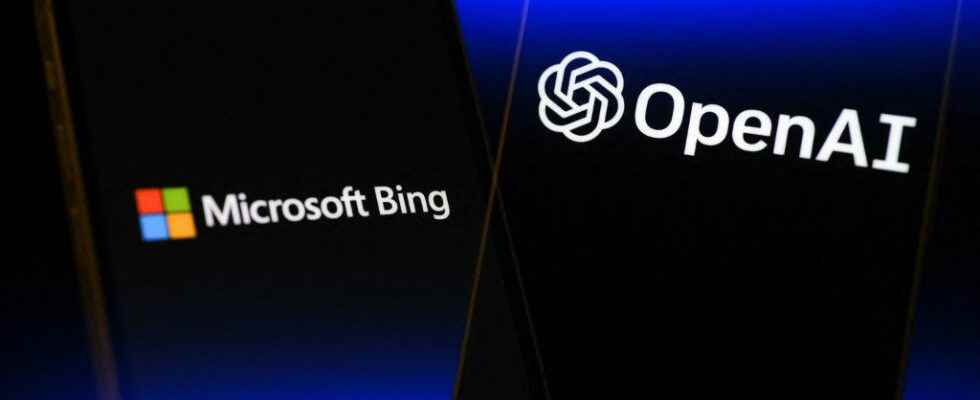Revenge is a dish best served cold. In the early 2010s, the confrontation between Google and Microsoft ended in a landslide victory for the first. A decade later, the second round has just opened and the positions seem diametrically opposed. In the past, Google outdated the giant Microsoft by blowing the mobile Internet market to it at lightning speed. He had had the flair to build his Android empire on a free and open-source basis (anyone can study and use the computer code), thus motivating a host of builders and application developers to use it and enrich.
Accustomed to its paid software model, relying on its successes in the PC ecosystem, the big liner Microsoft has not taken the measure of the mobile revolution fast enough. When he woke up, it was too late. “My biggest mistake was not guiding Microsoft to create what Android is today, which is the standard mobile platform for all phones except Apple. to win it. (…) Its value? 400 billion dollars”, still regretted Bill Gates, in 2019 during a conference of the Village Global fund.
AI will turn the Google empire upside down
In 2023, the Google sprinkler becomes the sprinkled one. Generative AIs such as ChatGPT are poised to disrupt many sectors, foremost among which is Internet research. And it’s Google, this time, which has an economic model that’s too comfortable in this area to want to kick in the anthill. It’s not for lack of having advanced skills in artificial intelligence (one of the technical foundations of ChatGPT was even invented by Google). But the generative AIs capable of answering questions and requests from Internet users, by offering them a summary of the information they find, will turn his empire upside down.
Because 80% of Google’s revenue comes from online advertising. Sites pay it to appear above the list of results or to display advertisements in the spaces provided for this purpose on their site. If people spend less time searching and visiting websites, life for them, and therefore for Google, will become much more complicated.
Conversely, with its Bing search engine, Microsoft holds a ridiculous share of the search market (3% according to StatCounter). He has nothing to lose and everything to gain. It is therefore he who advances his pawns with the most audacity, chaining the sensational announcements. Google follows constrained and forced. But, is it because the heart is not there, it does not currently meet the same reception as its rival Microsoft. Google saw its share price drop by 7.7% on February 8 after the launch with great fanfare of its AI Bard which had the misfortune to give an incorrect answer during a demo. A little unfair because the colt of Microsoft, ChatGPT, also commits its share of blunders. But there is no point in complaining. Even less to brake four irons. Google must remember the lesson inflicted on Microsoft a decade ago: you can’t stop progress.
